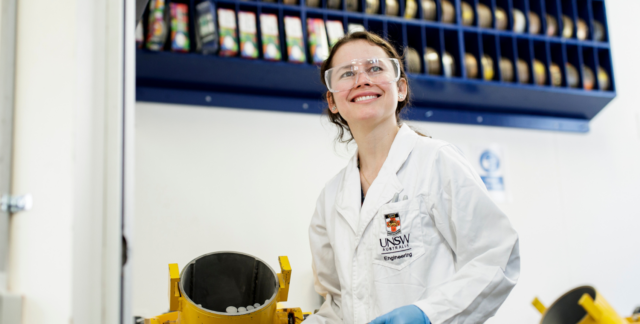Sustainable solutions to gender inequity in STEM fields have four key features in common, says SAGE CEO Janin Bredehoeft.
“Our work supporting gender equity, diversity and inclusion in the higher education and research sector points to some features that are usually present when organisations are making significant progress.” said Dr Bredehoeft. “These features can and should be replicated in other STEM fields.”
SAGE says that successful, context-specific interventions – including the program provided by SAGE – have all four of the features common to sustainable solutions. They are:
- data-driven and evidence-based
- addressing systemic barriers throughout the STEM lifecycle
- supported by organisational leaders who hold themselves accountable for the intervention’s success, and
- designed with an intersectional lens.
SAGE has called for the Commonwealth Government’s Pathways to Diversity in STEM Review to take these four key lessons from progress in the Higher Education and Research sector.
“Higher education and research institutions hire Australia’s top STEM talent,” said Dr Bredehoeft. “There is an appropriate expectation that the sector will provide leadership towards gender equity for other STEM industries and sectors.
“The practices in those workplaces could be perceived as what is accepted or even endorsed by the nation’s leading thinkers. It is paramount for higher education and research institutions to be models of best practice in diversity and inclusion.”
SAGE’s recommendations draw on a decade’s experience supporting and guiding universities and research institutes around Australia in their approaches to improving gender equity. SAGE is the only Australian organisation licensed to grant awards and accreditation under the internationally recognised Athena Swan Charter.
“SAGE program participants are undergoing a deep process of reflection and innovation,” said Dr Bredehoeft.
“As an accreditation body, we are in a unique position to hear about the most successful interventions and actions these institutions are taking. It gives us a birds-eye view of what is working repeatedly in different contexts, and what can be replicated elsewhere.”
The Review also provides an opportunity to share best practices on how to enhance the uptake and success of GEDI interventions.
“Success is context-specific,” said Dr Bredehoeft. “Each STEM sector needs to agree on meaningful sector-wide metrics for GEDI success, with targets to achieve these and regular reporting on progress, outcomes and impact. Organisations should be supported to share their actions and impacts, so these can influence actions across the sector.”
SAGE has also recommended the development of a national complaints system for workplace sexual harassment and assault, and the introduction of GEDI performance as an assessment criterion for competitive funding.
Click the button below to download SAGE’s full submission to the Pathways for Diversity in STEM Review.



